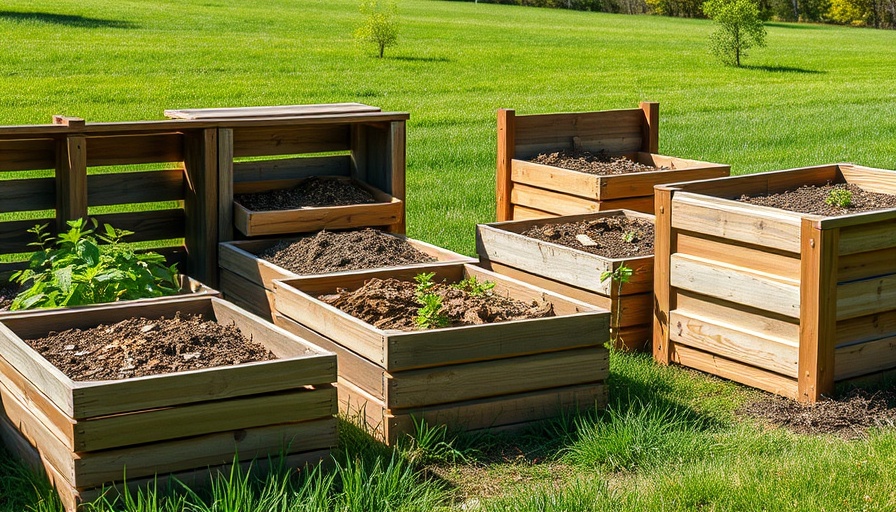
Transform Your Kitchen Scraps Into Gold: The Art of Composting
Composting has transformed from a niche hobby to a vital practice for eco-conscious individuals seeking to reduce their carbon footprint. For travelers and hospitality professionals alike, knowing how to compost effectively can lead to more sustainable food service solutions and stronger connections to local ecosystems. Whether you're a budget traveler visiting local farms or a resort manager wanting to enhance your sustainability strategy, understanding the essentials of composting is crucial.
Why Composting Matters
Composting offers numerous benefits that extend beyond waste reduction. First and foremost, it diverts organic waste from landfills, decreasing greenhouse gas emissions. Landfill waste produces methane, a potent climate-changing gas. By composting, you're not only dealing with personal waste efficiently but also participating in a global movement towards sustainability.
What Can You Compost?
The ideal composting mix contains a balance of 'greens' (nitrogen-rich materials) and 'browns' (carbon-rich materials). Here’s a concise list of what you can include:
Greens: Fruit scraps, vegetable peels, coffee grounds, and eggshells.
Browns: Dried leaves, straw, cardboard, and sawdust.
Extras: If you're looking to enhance the nutrients, add in grass clippings, crushed bone meal, or seaweed.
Interestingly, certain items are better excluded from your compost bin, such as dairy products, oils, and meats. These can attract pests and lead to odor problems.
Creating Your Own Compost Bin
Building a compost bin can be an engaging project for both homeowners and those managing hospitality businesses. You don’t need anything fancy; a simple enclosed structure made from reclaimed materials can suffice. Here’s a step-by-step guide to creating one:
Choose a dry, shaded spot in your garden.
Construct your bin using pallets or wire mesh.
Add layers of greens, browns, and a sprinkle of soil to kickstart the process.
Keep the compost moist, turning it weekly to aerate and promote decomposition.
Incorporating features such as efficient cold storage can help maintain freshness in compost ingredients, especially for busy kitchens in resorts or restaurants.
Composting Best Practices for Hospitality
For hospitality professionals, managing food waste through composting can offer a competitive edge in sustainable development. Here are practical insights to implement:
Sustainable Food Service: Engage local farms to take surplus food scraps for composting, creating a symbiotic relationship.
Training Staff: Educate employees on composting benefits and operational practices, promoting a culture of sustainability.
Promote Eco-Friendly Packaging: Use compostable packaging wherever possible, which complements composting efforts and bolsters business sustainability.
Challenges to Consider
While composting can greatly enhance sustainability efforts, there are challenges to be aware of, especially when scaled for multiple users, like hotels. Training staff properly, ensuring the right ratios of materials, and keeping the process free from contaminants are essential to maintaining effective composting practices.
Future Insights on Composting and Sustainability
With an expected increase in eco-tourism, effective composting practices will be pivotal in shaping the future of hospitality. As brands pursue net-zero hotels and other green initiatives, composting can serve as a cornerstone of these sustainability strategies. Moreover, the demand for leather alternatives and sustainable materials also indicates an evolving market focused on responsible consumption.
Conclusion: Take Action Today
By adopting composting as a standard practice, individuals and businesses can directly reduce resource consumption and reinforce their commitment to an eco-friendlier future. Whether you're traveling, managing hospitality, or just looking to reduce your carbon footprint, composting presents an opportunity for impactful change.
For more insights on improving sustainability in your travels and hospitality services, feel free to dive deeper and start your composting journey today.
 Add Row
Add Row  Add
Add 




Write A Comment